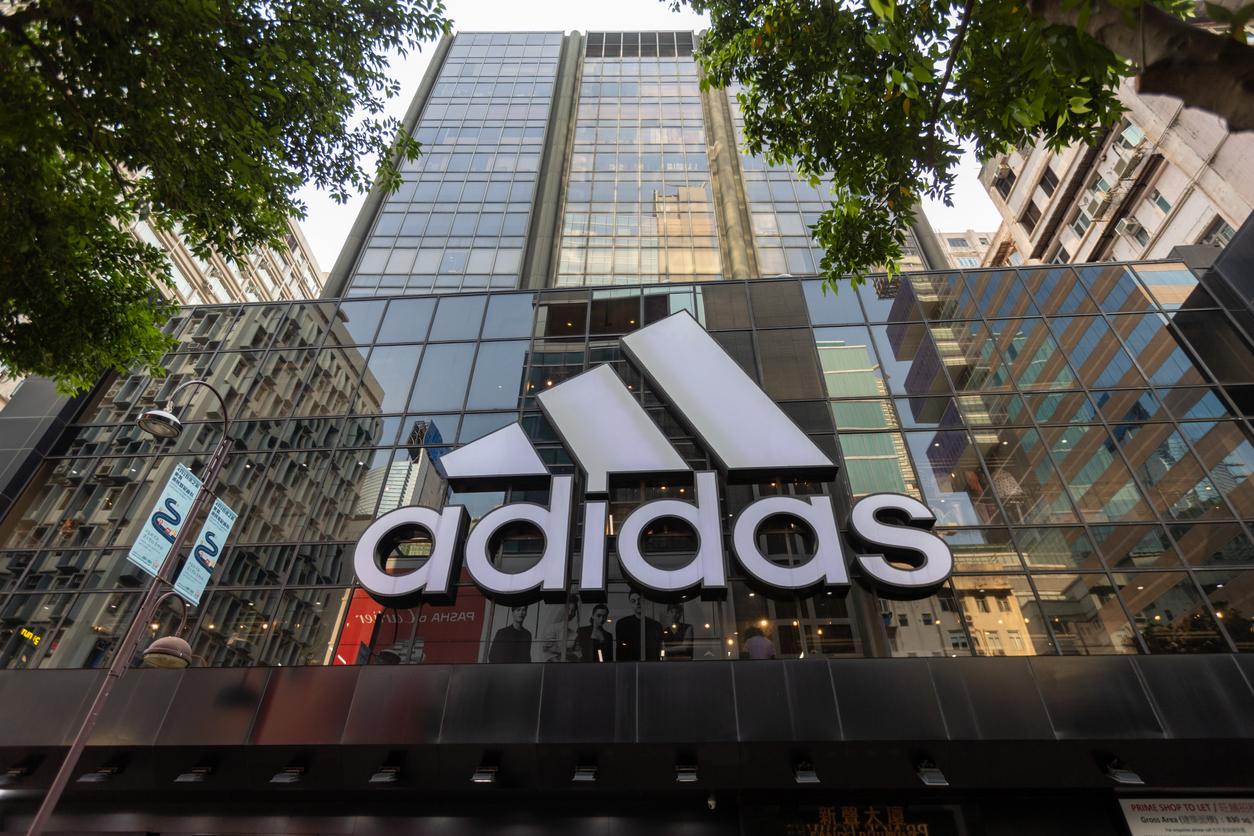Learn from Adidas’ PR mistakes with Ye
Despite cutting ties, Adidas isn’t out of the woods yet.

Adidas waited too long to respond to an influencer who had turned toxic. Here’s what you can learn from their mistakes.
Sinead Norenius-Raniere, who serves as vice president of Product and Influencer Marketing Strategy at Cision, sees that concern with Adidas, who didn’t terminate their relationship over Ye, the controversial rapper formerly known as Kanye West, until Tuesday morning.
Adidas belatedly joined Gap, Balenciaga fashion house and Ye’s talent agency, CAA, in cutting ties with him.
Norenius-Raniere said the answer to why Adidas waited longer to respond may be complicated since Adidas’ legal contract with Ye may have led to a delay, but companies still need to be more proactive and transparent when dealing with the public.
[FREE WEBINAR: How to develop a comms plan … that actually works!]
In Tuesday’s announcement, Adidas said they had started a review of Ye on Oct. 1, but did not sever ties until Oct. 25, more than a week after he made flagrantly anti-Semitic comments.
Why Adidas should have responded earlier
Norenius-Raniere said an earlier comment from Adidas would have been helpful.
“I believe that a statement of some sorts is important,” she said. “Because consumers want transparency, they want to know who they’re buying from and why. A little bit more information would have been a better move. I personally was surprised at how long it took.”
She added that Adidas could have made a public comment after Ye wore a “White Lives Matter” shirt during Paris Fashion Week on Oct. 3.
“I would hope that a brand working with someone like Kanye West understands what they are potentially walking into and understand their own risk tolerance for partnering with someone like a Kanye West,” she said.
Adidas started their relationship with Ye in 2013.
Adidas is facing tough times with projections of losing $246 million this year from its decision and Norenius-Raniere says the company is not out of the woods yet from a public perception standpoint.
What’s next for Adidas?
The company said it would next comment on the matter around their next earnings report in November.
“I think the next few statements are going to be very, very telling.”,” she said. “They are a huge brand and they are obviously taking very methodical steps. I think Adidas is having a lot of consulting and a lot of advising right now.”
She said companies should be aware of the potential harm that companies face when working with influencers.
“Who in the background is doing that risk assessment from a financial perspective?” Norenius-Raniere asked. “And I think that is where sometimes companies get tripped up because they are more enamored by landing the celebrity or landing the influencer and making that deal without taking a step back to really assess financial risk.”
Are companies doing more homework on influencers to avoid dealing with Ye-like situations in the future?
Norenius-Raniere believes they are.
“They would be silly not to,” she said. “We live in a day and age where everything is instantaneous. Certain things that companies or individuals will say have dramatic repercussions on people’s lives today, because everything is so instantaneous, right? We as PR individuals need to up the ante and make sure that our clients are prepared.”
How PR professionals can advise clients to avoid Ye-like situations in the future
And Norenius-Raniere said it’s up to communications professionals to emphasize the power of being proactive to clients.
“There needs to be a plan in place,” she said. “Companies themselves have a very clear direction on who they are, what they stand for, and what they will and will not tolerate. Who do we want to partner with? Does it align with our mission and values? All those conversations have to begin way earlier than at the time of an incident.”
And when those incidents happen, communications professionals can advise companies as they start a relationship with influencers.
“From there, then it becomes what is our plan when things go awry,” she said. “How do we as a company want to react, once again, does how we react aligned to our values?
Chris Pugh is a staff writer for PR Daily. Follow him on Twitter and LinkedIn. Send story ideas to ChrisP@Ragan.com.
COMMENT
4 Responses to “Learn from Adidas’ PR mistakes with Ye”
PR Daily News Feed
RECOMMENDED READING
Values, misinformation and the year of elections: Insight from Ragan’s Social Media Conference
3 rules to crush PR partnership announcements
The case for elevating CCOs to CEO roles
Tags: adidas, Cision, kanye west, ye








This is a classic risk when sponsoring a famous athlete, a risk usually worth it. If the sponsored athlete is caught with drugs or beating up a woman, the sponsoring company takes a reputational hit.
Look how you may be better off, although few companies think of this, sponsoring doctors looking for a way to make a cancer vaccine, a remedy for Alzheimer’s or diabetes, or life-saving plastic parts for hearts.
.1. The doctor may be much less likely than the athlete to take heroin or beat up a girlfriend.
.2. Success by the doctor may bring your company worldwide acclaim.
.3. In addition to making news and making money, your company may more importantly make life safer and happier for millions of people. It’s not just gelt by association.
How can you pick a medical team to sponsor? Start by asking “how could we help you?” at a top hospital like NY-Presbyterian Weill Cornell Medical Center or Cleveland Clinic for heart disease, Memorial Sloan Kettering or MD Anderson for cancer, Mayo Clinic for diagnoses or Johns Hopkins for pure research at the highest level.
Or look at the PubMed website which is a government compendium of
articles in top medical journals. You can then pick investigators who are the tops in their field, and sometimes even pick a research project nearing successful completion.
Or see what your CEO’s spouse or child died from. The boss may not only get you the money but think highly of you for your interest.
Sponsoring a medical hero may be not only safer than sponsoring an athlete but your company may be praised by media worldwide following your announcement. The doctors tell how many lives are lost to the disease each year, your CEO is shown thanking the great doctors for their dedication, and the doctors praise your company lavishly for generosity in protecting the public.
To increase public attention and involvement, have the doctors tell (a)
how to avoid the illness when possible, and (b) how to spot symptoms so doctors can catch it early.
If it’s true that all including all companies have sinned and come short of divine glory, your generous support of medical research may help save not only many lives but perhaps even your company’s neck. And will your execs find it easier to get appointments with top doctors?
Okay, Adidas made a mistake. I will say that when Kanye was spewing hate against Black people, he should have been stopped then and perhaps he would not have escalated to saying those horrible things about Jewish people. The previous post about doctors less likely to behave badly is NONSENSE! What is closer to the truth is that doctors are less likely to get called out and that information does not make the national news! This incident is NOT an invitation for folks to use that old go-to- opportunities are wasted on “them” rationale.
It could influence management’s opinion of you and the success of your PR career so judge whether Andrea Taylor is right. To judge whether it is NONSENSE—or savvy, original PR thinking—to sponsor a doctor’s health research, look at two questions.
.1. Which is more likely to bring your management national or worldwide media acclaim, (a) if you sponsor an athlete who hits a home run or even three home runs in the same day, or (b) if you sponsor a doctor who announces progress in finding a vaccine for cancer? Not actually finding but progress.
.2. Which is more likely to bring your management PR grief, (a) a sponsored athlete gets into a drunken highway accident or beats up a girlfriend or (b) a sponsored doctor gets into a drunken highway accident or beats up a girlfriend? Which is more likely and less likely?
Which sponsorship is more likely to make 100 million or more Americans want to buy what you sell and want congress to favor what your management favors?
Which sponsorship is more likely to make management ask WHO GOT US INTO THIS? Who hired this guy?
After millions of Covid deaths in recent years plus tens of millions of cancer and heart disease deaths, does it make sense to do the same athlete sponsorships and endorsements as in the past 20 or 30 years? Or may management think even more highly of you if you suggest doing for the public what the public cares about most, protecting health and saving perhaps millions of lives?
If you sell management on “sponsor a doctor,” or spend the same $100,000 to sponsor the whole infield of a local team, will PR headhunters think you are guilty of NONSENSE or will they more likely include your resume in the final ten?
There is a HUNGER for original PR thinkers. Even if you propose it but management doesn’t buy it, may they think more of you for original thinking?
If your CEO stands with three of the world’s greatest cancer doctors at a press briefing, and they say says here’s what–sponsored by this generous company– we are trying to do to protect your health and your family, is that NONSENSE?
Thank you for writing this concise, well-written piece! The remarks from Ye have been jarring and have shattered the trust he held with his target audience. It also makes sense that the decisions (and speed of the resulting actions) have been under the microscope from consumers as well.
The resulting fallout of Ye has become a case study for public relations professionals and their approach to crisis communications. I will be interested to see the proactive measures brands take when entering financial contracts with celebrities and influencers in the future.
— Trinity Hunter, co-editorial director of Platform Magazine